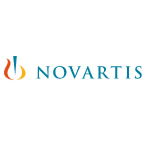Novartis primero para hacer la vacuna H1N1 usando nueva tecnología de la célula
por Lynn Shapiro, Writer | June 13, 2009

A major breakthrough
in vaccine production
in vaccine production
Flu vaccine maker Novartis said Friday it has produced its first batch of the swine flu vaccine using new cell-based technology (which rivals haven't yet developed), that is quicker and yields larger quantities of medicine than the traditional method of growing vaccine in eggs. Novartis said it would combine the cutting-edge cell-based technology with the egg-based method.
"We are using both cell-based vaccine production in Marburg, Germany, which is faster, and our egg-based manufacturing in Liverpool, UK and Siena, Italy to increase the likelihood of the greatest possible supply," Novartis said. The company said clinical trials would begin in July and that it expects to market the vaccine this fall, assuming the trials are successful.
Before now, it was widely believed that cell-based technology was not perfected, so Novartis' feat in using it effectively so soon comes as a surprise to many in the industry. For example, rival vaccine makers recently told DOTmed News they would be growing vaccine in eggs and that cell-based technology was still in the developmental stage.

 These manufacturers--Sanofi-Aventis, GlaxoSmithKline and Solvay--all received the H1N1 seed virus in recent weeks and expect to have a vaccine in time for the Northern Hemisphere flu season.
These manufacturers--Sanofi-Aventis, GlaxoSmithKline and Solvay--all received the H1N1 seed virus in recent weeks and expect to have a vaccine in time for the Northern Hemisphere flu season.
Meanwhile, WHO reported that vaccine makers could produce up to 4.9 billion swine flu shots a year, leaving some of the world's 6.5 billion population unprotected.
On Thursday, WHO declared that the virus had reached pandemic proportions, affecting people around the world.
Source: Novartis, WHO
"We are using both cell-based vaccine production in Marburg, Germany, which is faster, and our egg-based manufacturing in Liverpool, UK and Siena, Italy to increase the likelihood of the greatest possible supply," Novartis said. The company said clinical trials would begin in July and that it expects to market the vaccine this fall, assuming the trials are successful.
Before now, it was widely believed that cell-based technology was not perfected, so Novartis' feat in using it effectively so soon comes as a surprise to many in the industry. For example, rival vaccine makers recently told DOTmed News they would be growing vaccine in eggs and that cell-based technology was still in the developmental stage.
Your Trusted Source for Sony Medical Displays, Printers & More!
Ampronix, a Top Master Distributor for Sony Medical, provides Sales, Service & Exchanges for Sony Surgical Displays, Printers, & More. Rely on Us for Expert Support Tailored to Your Needs. Email info@ampronix.com or Call 949-273-8000 for Premier Pricing.

Meanwhile, WHO reported that vaccine makers could produce up to 4.9 billion swine flu shots a year, leaving some of the world's 6.5 billion population unprotected.
On Thursday, WHO declared that the virus had reached pandemic proportions, affecting people around the world.
Source: Novartis, WHO





